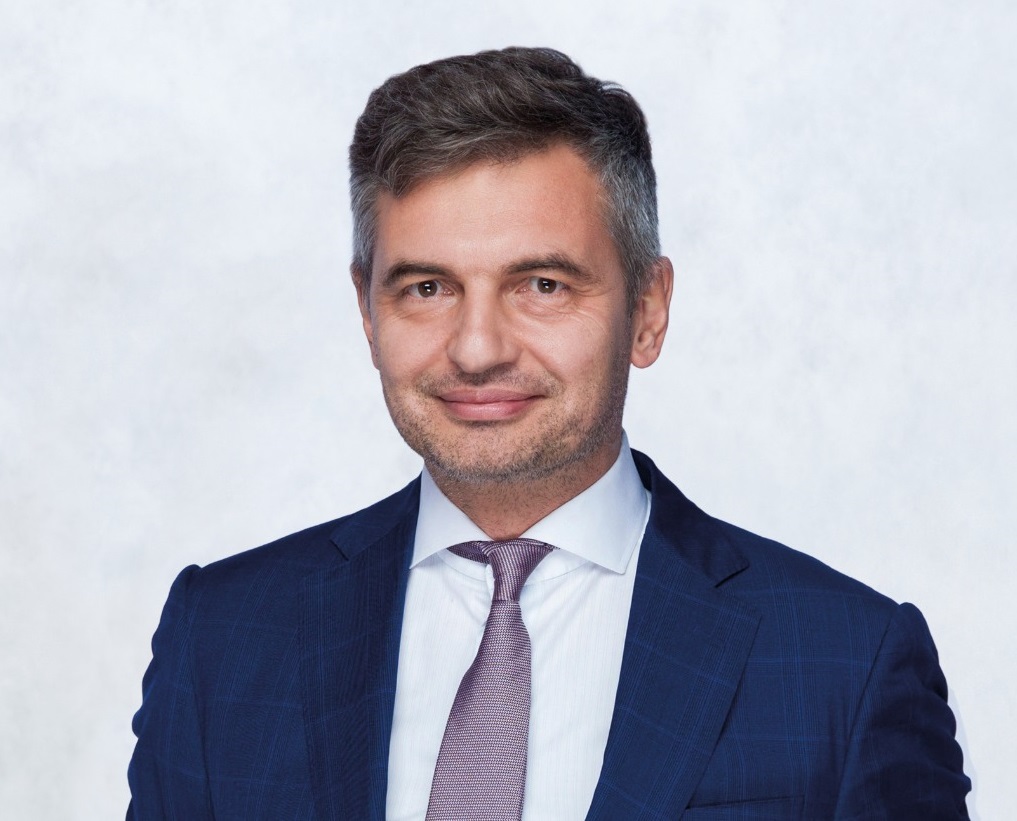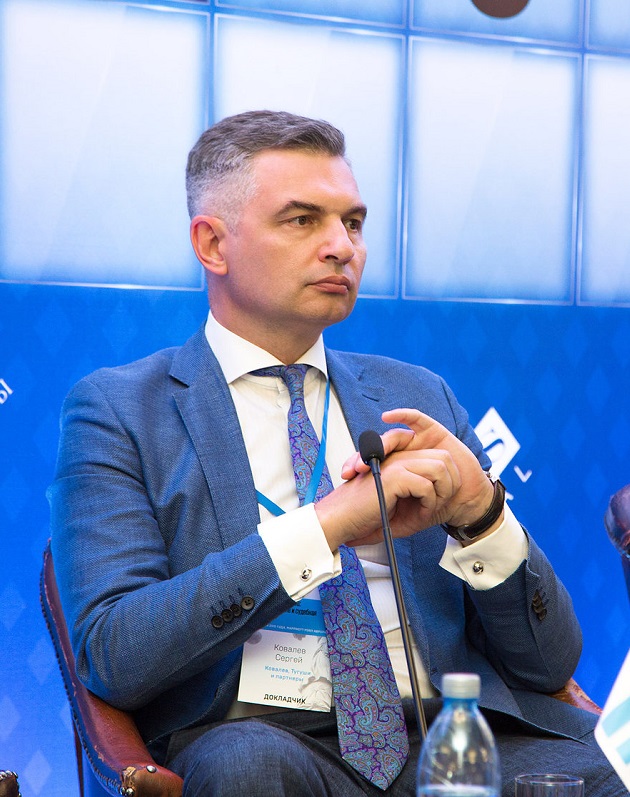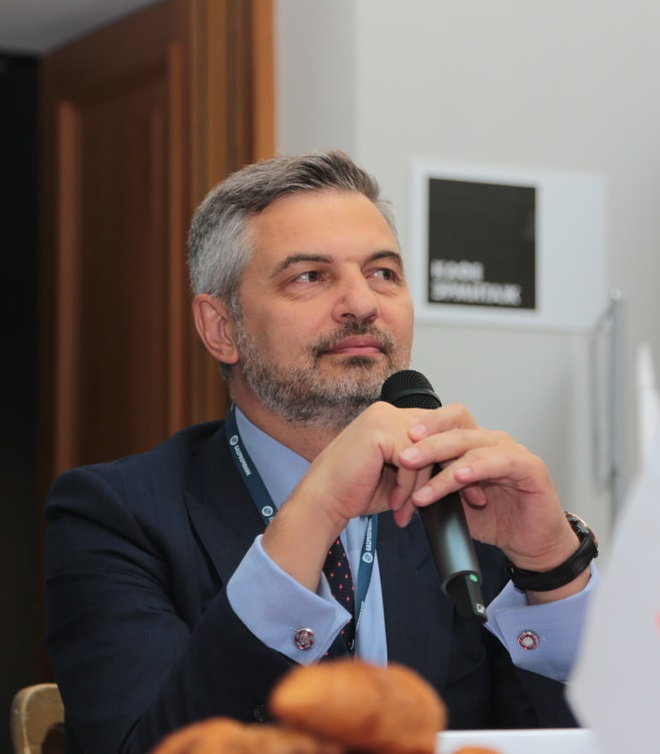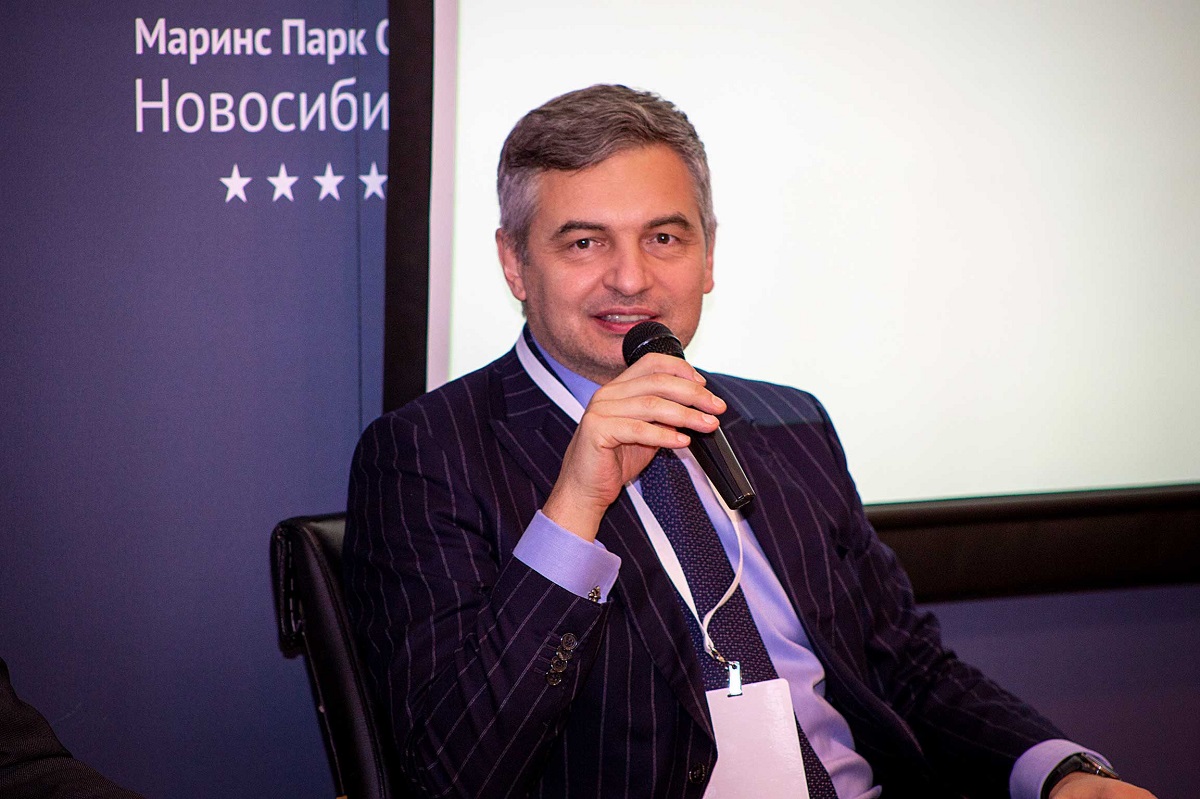“Only the one who goes to court and wins is at the top of the legal pyramid,” Sergey Kovalev, a graduate of the RUDN University Law Institute
What was your first day at RUDN University like?
When I enrolled in RUDN University, studying at the Preparatory Faculty was mandatory for everyone. A very extravagant teacher came into our small language group at our first class and said that we would learn Spanish. She was wearing leather trousers and looked like a revolutionary commander. The teacher emotionally read Garcia Lorca’s poem ‘La guitarra’. Everyone looked at each other, and probably shuddered internally. It was an amazing language strike which brought us all together.
It’s hard for me to remember my first day as a teacher: I smoothly moved on to teaching in postgraduate programme. There were many smart, active, energetic guys among my first students. In the first few years, students perceived me ambiguously. They had a feeling of rivalry, and some did not know how to relate to ‘this actor’. I had to prove that I can be their teacher and that I have something to share.
Tell us about your student days. How did you get to RUDN University in your student years? Which of your fellow students were your friends? Who do you continue to communicate with, and who do you admire?
From the first days of my studies, I lived in a student hostel, I had only to cross the road, and I was already in class. My compatriots, as a rule, lived with foreigners in the same room, so when I studied at the Preparatory Faculty, I also lived with two Brazilians, one of whom is still my best friend. He successfully defended his PhD thesis and now teaches at the University of Sao Paulo, where he heads the Laboratory of Nuclear Physics. The other roommate of mine was a Cambodian. Unfortunately, at present I’ve lost his contacts, and we stopped communicating. However, we communicated for a long time, and from our last conversation I learned that he had been invited to work as a Secretary of the Cambodian Embassy in the United States.
I admire many human qualities, but I respect professionalism more than others. I constantly communicate with my fellow students, for example, these are my friends, Valery and Larissa Konovalov, they became a couple in their student years, and today they have their own Konovalov law office.
Another example is my friend Alexandr Savin. He is the chairman of the bar, specialist in criminal cases. We often work with Alexandr, as civil, corporate and bankruptcy issues deal with criminal law problems, that is, a bankruptcy case often goes with criminal cases.
Which professions that are not taught at RUDN University were you dreaming about as a child?
Since my childhood, my approach has always been as follows — to get the maximum and be the first. So, it was not interesting even to be a cosmonaut — I wanted to fly to the stars, to be a space pilot. But unfortunately, people still do not fly to the stars.
And if I chose a profession today, I would think over it, because I have always loved and still love mathematics. Sometimes you want to try your hand at this exact science, where there are no judges with a subjective assessment of your actions, when you can prove or not prove your case.
What emotions did you have when you defended your bachelor’s, master’s and PhD theses?
Starting with bachelor’s research works and ending with a Ph.D. thesis, Vitaly Bezbakh was my supervisor. For me, he is an example of intelligence, dignity and high professionalism. My thesis was devoted to a quite rare topic. It compared the English trust, similar structures in German and French law with the Russian trust management, which had just appeared then. And today I have a big legal dispute in which, like English lawyers, I can act as an expert in English trust issues because I defended my PhD thesis on this topic.
If you chose the topic of your thesis again now, what would you choose?
I like my topic but I would suggest a slightly different approach — based not on the field of interest, but on practice. As when you deal with specific issues, you always have both theory and practice, you do not need to collect material and formulate problems. If I had known that I would not deal with trusts I probably might not have chosen this topic. But it would be very interesting in terms of the theoretical approach.
What three subjects were your favourite in your student years?
Theory of Law and History of Law were interesting. Also, Civil Law is the queen of everything I do. It is easy to distinguish a deep lawyer from a shallow one: someone just learns the rules, and someone has a theory that they can use to analyze any law. This is the basis on which everything else is built. Laws often change, and if you just learn a set of legal norms, and these norms have changed, your education can be reset to zero. And if you have a systematic understanding of law, you will be a good lawyer.
History is meaningful to me because of the teachers. Oleg Zhidkov, an exemplary lawyer, delivered excellent lectures. No less remarkable for me was the practicing teacher — Alexander Vishnevskiy, as well as an amazing teacher of Civil Law Borovikov. We learned through cases — learning based on illustrations of live examples was mastered better.
Which subject you teach now is your favourite?
I love Corporate Law. The subject is narrow because a joint-stock company is just one organizational and legal form of a commercial entity. However, all big business in Russia is in this form. In the post-Soviet period, it was the first form of organizations that issued securities for the stock exchange. At the time it was something that came from the ‘capitalist expanses.’ I worked in the stock market for several years and had an interesting experience, so now I enjoy teaching.
Did you have any students who surprised you in your classes?
Students surprise me all the time, for example, the Director of the Institute of Law Sergey Zinkovskiy. He was my first student who did not retell textbook material but gave his own analysis. Sergei really was an outstanding student. We worked together for a long time.
I taught Commercial Law of Foreign States for a long time. I had
I was looking for employees for my company, including from among my students. And now some of the employees of my company are RUDN University graduates.
My partners in the legal business, Dmitry Tugushi and Sergey Kislov, were also my students. By the fourth year, as a rule, the people were already mature, and therefore I could always find one or two candidates that I could invite to work. I remember that at the end of each lecture on Corporate Law, one student specifically asked a tricky question, which made me think at times. And now he works for me.
And I also remember that I was surprised by the group I worked in the year before the pandemic with. A group can be usually called good if there are 5 active people in it, but if 20 out of 25 people are active in the group, it is already amazing. And all 25 students made an impression in this group! Either I was very lucky — the best people gathered in my special course, or it was really a strong group, which was very pleasant to work with. When you see the students who are interested in your subject and their burning eyes, you realize that you are not wasting your time. Today, one of these students also works in my Collegium.
What qualities should a student have to be invited to work by you?
Interest in the profession, proactive life position, skills in legal expertise or the ability to quickly obtain it. I am ready to see and hear the candidate, and they must be active, sociable, persistent for this. Students need to break through the veil of everyday life.
You are a managing partner of the Kovalev, Tugushi and Partners Moscow Bar Association. What do you specialize in?
I specialize in 2 things — courts and bankruptcy. Bankruptcy in Russia is under the control of the court. The court is the moment of truth. Lawyers can act in different ways, but it is the court that will determine which of them is right. And only the one who goes to court and wins is at the top of the legal pyramid. I have been in various Russian courts, prepared positions for various foreign courts. The court is an important place where lawyers can show their worth. They must have a deep knowledge of substantive law, be an excellent proceduralist, good speaker and good psychologist. Emotional capability and charisma are important. Logic and the ability to structure are also indispensable. A person arrives with a problem which is set out in a truck of documents, and you have to make a
Bankruptcy, as my specialization, took its shape in the crisis years of
Imagine that RUDN University were a person. What would you give him/her as a birthday present?
I love RUDN for its warm atmosphere. For me, it is a place I have long been connected professionally and emotionally with. I am grateful to Evgenia Frolova, new Head of the Department of Civil Law and Procedure and Private International Law, for trying to preserve the traditions.
I would give RUDN University some modern device to help find the right solutions in the complex modern world, offer interesting topics, and attract talented students.
What ‘quality’ do you appreciate most in RUDN University?
Kindness, open-mindedness. There are a lot of international students with their own rules, culture, history and traditions at RUDN University. This makes you develop and look at the world in a more broad, new way. I also appreciate conservatism — it’s part of the tradition. When elements of something better are preserved, it is good and right. This creates a historical connection between what happened and what is happening. A nation that does not know its history has no future. Likewise, it is much more difficult for any university that has no connection with history to create its own future.
Why Arabs talk loudly, how science helped find love, what is the connection between quickstep, patience and the Arabic language – read an interview with Anna Lashina, the best graduate of “Foreign Regional Studies: Middle East”.
In 2019, Tatiana founded the Youths Make a Difference (YMD) International Youth Organization. It's been over a year since the last interview. She graduated from the university with a degree in Technical Systems Management, returned to Cameroon and signed a memorandum of understanding with the Ministry of Youth Affairs. Read the iterview to find out what has changed.
How finances and furniture are connected, why Russian prefixes terrify a foreigner and where they cook the most delicious shawarma – read an interview with Anton Borodin, the best graduate of the Finance and Credit program from Finland.



